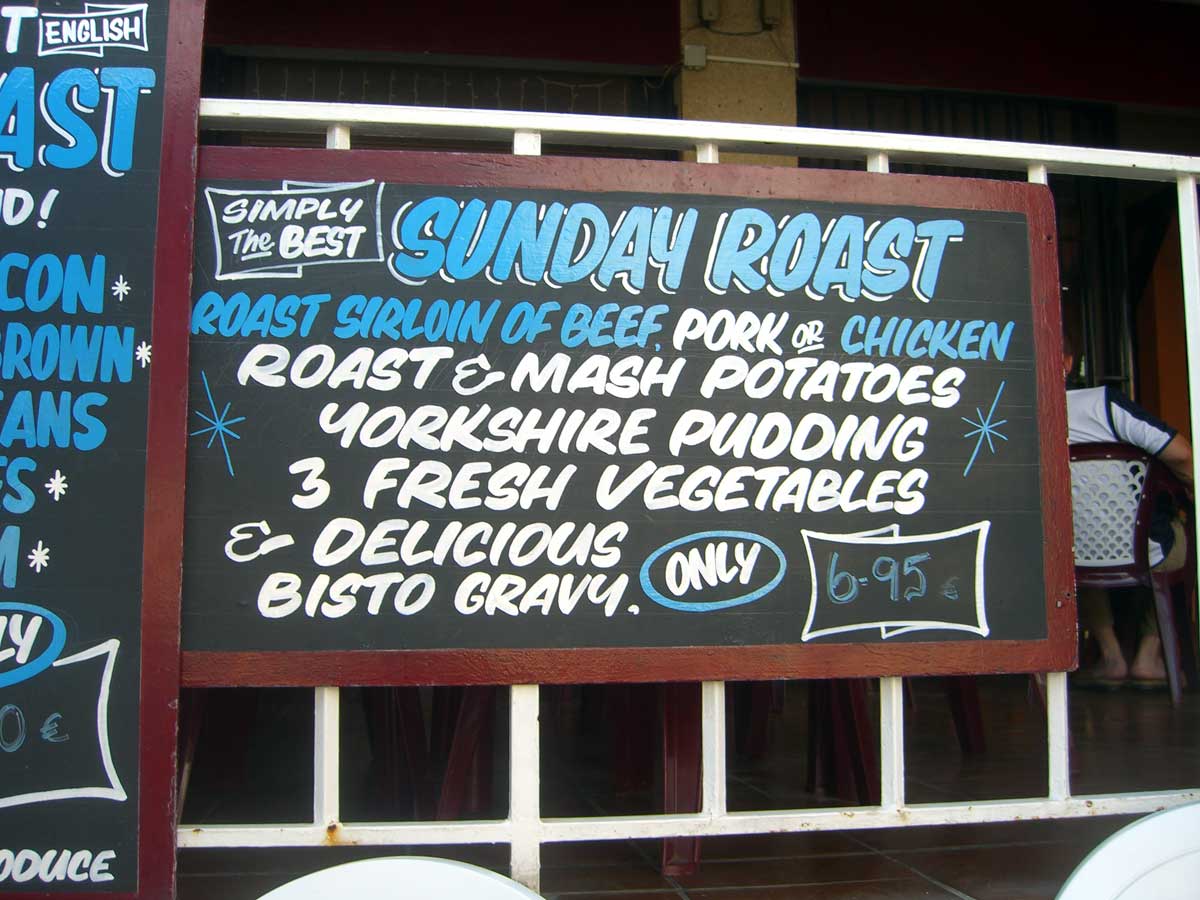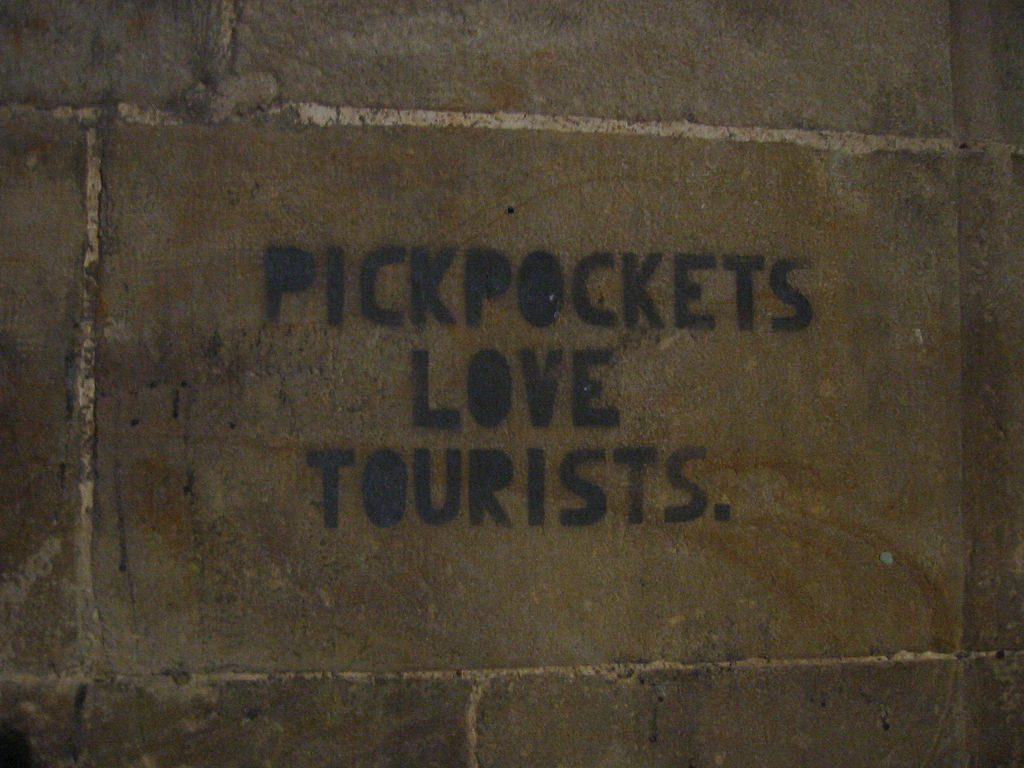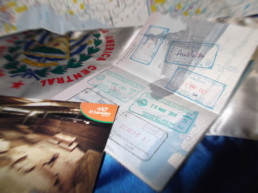The first post in this How to Be A Traveler, Not A Tourist series discussed being true to your interests when traveling. This second article explores why it’s necessary to leave the tourist areas behind to seek out the true heart of a city.
‘Tourist Area’ is usually synonymous with ‘Rip Off’
A town’s centre, or wherever its main tourist draws are clustered, is expectedly where you’ll find the highest concentration of visitors. Many tourists tend to stay within the boundaries of these zones, enjoying the subtle comforts of being surrounded by people just like them over exploring the unknown frontiers beyond.
The establishments in these high density tourist spots are heavily subsidized by travelers’ wallets, which have often, to the dismay of locals, corrupted the mentalities of owners to pursue a ‘higher cost, lower quality’ strategy. Take for instance the recent tourism scandals in Venice, where travelers were charged €100 for four coffees and three liquors, and Rome, in which British tourists were forced to shell out €64 for a few ice creams. Many residents of Rome were not as shocked by this revelation as you’d expect. In fact, many have learned to live with these absurdities. As described by one Roman who works in the highly touristed area surrounding the Piazza Navona, the price of a cappuccino changes drastically over the course of the day, reaching its peak during prime tourist hours.
I have sadly fallen prey to this one multiple times. On the outskirts of the Jewish Ghetto in Prague, I was so caffeine deprived from my late arrival the previous night that I ducked into an indiscriminate looking cafe and ordered a coffee. Without having yet grasped the Czech Kroner to Euro differential and being far too groggy to do ‘fast math’ in my head, I shelled out 135 Kč for a regularly sized plastic cup of lukewarm coffee. It wasn’t until the first sips of caffeine finally penetrated my blood stream that I realized I had just paid about $7.50 for a mediocre-at-best coffee.
Spots catering to tourists usually lack authenticity

Much to the chagrin of wronged tourists and locals alike, businesses in the heart of the tourist scene often provide a skewed portrait of local life and instead play up stereotypes that visitors expect to encounter.
During a trip to Munich, our first-timer friend wanted to check out the infamous Hofbräuhaus. Despite the loud remarks of disapproval and the numerous groans of reluctance by the local Germans in our group, there was no changing her mind. “I just want to see what all the hype is about” she exclaimed. “No Germans actually go there, it’s just a tourist spot” they protested. In the end, she won and they dragged their heels all the way there, cringing when we were greeted in English and rolling their eyes at the ridiculous behaviour of some tourists at the table beside us.
On the flip side, some places seem to exist solely to provide tourists with comforts from home, setting aside any semblance of localness. When I travel I absolutely love being immersed into a new culture, experiencing all of the unique aspects relative to my own. I am certainly not interested in engaging in the same routine that I typically would at home – why go so far away just to do what you normally would?
These businesses aren’t entirely to blame for this phenomenon, though. I frequently encounter tourists complaining that they can’t find the things they’re accustomed to at home. Often times, they are borderline outraged that this culture hasn’t adopted the normalities they are used to: no skim milk for their coffee in Paris, lack of egg based breakfasts in Germany, and no dinner before 9 pm in Spain. This has evolved into a lucrative market opportunity which some businesses exploit to remain viable.
One of the best examples of this that I’ve encountered is on the island of Tenerife in the Canary Islands. In the popular tourist area of Costa Adeje, where visitors from the U.K. are especially prevalent, a large number of restaurants litter the main drag. While you might assume that these culinary outposts would provide hungry travelers with plenty of local dining options, the vast majority of said restaurants boast large eye-catching signs in their windows highlighting their full English breakfasts and Sunday roast specialities.
Tourist areas can be more dangerous

You had enough money to travel here so you probably have at least some cash for sight-seeing, a camera to capture the moments, and your wallet with essential identification on you as you meander around the city’s tourist sites. At least that’s a thief’s assumption, and I’m wagering that it’s quite accurate. I always have more money when traveling than when I’m just wandering around my own city as I’m rarely forced to consider such horrors as foreign exchange, transaction fees and incongruent payment systems when I’m home in Toronto.
In cities packed to the rafters with tourists, visitors are basically walking targets, with large, blinking, Vegas-esque dollar signs above their heads visible only to local hooligans. Your odds of being robbed, scammed, or harassed tend to be proportional to the level of touristy vibe you’re emitting. And don’t think that you’ll be able to blend into the local crowd either, as the density of locals in tourist areas is usually sparse.
Almost everyone I know who has experienced this type of crime has experienced it while strolling off-guard in a tourist area. Case in point, a friend was robbed two times in one day on Las Ramblas in Barcelona (requiring her to go to the U.S. Embassy twice for an emergency passport); another was pick pocketed inside the Vatican Museum in Rome; and another still foiled a would-be robber on the Charles Bridge in Prague (a story for another article but here’s a spoiler – she left him with a broken nose).
Don’t miss the next instalment of this How to be a Traveler not a Tourist series which will focus on emulating the locals for an enhanced travel experience.
Photos courtesy of Flickr, ellsea64 (CC BY-NC-ND 2.0); cackhanded (CC BY-NC 2.0); DogFromSPACE (CC BY-NC-SA 2.0)
Make your next trip the best one.
Departful is a full service travel agency creating truly exceptional travel experiences that are 100% personalized to you. Wherever you’re going, whatever your interests, we help you plan the perfect trip.
Lauren
Lauren Barth co-founded Departful in 2012 and is the Managing Director of Departful Media. Since then she has worked between North America and Europe and has published content in partnership with a variety of tourism boards and businesses based around the world. Lauren is currently based in Toronto, Canada.
More travel inspiration from Departful
1 Comment
Add comment Cancel reply
This site uses Akismet to reduce spam. Learn how your comment data is processed.





Great, helpful post, Lauren! I’ve also fallen victim to the comforts and artificialness of touristy areas while traveling with my fiancé. There is a wealth of culture and experiences to be had in the non-touristy areas and, assuming you have a good sense of the area/culture, exploring these areas can be safe, fun and fulfilling. Through my travels and our time hosting travelers on Airbnb, I’ve come to appreciate the value of knowing a local who can give you advice and recommendations when you want to explore these areas. This appreciation and my experiences inspired me to start YourLocalMe, a service that gives travelers personalized recommendations and real-time answers, directly from locals in San Francisco. It would be awesome to get your thoughts on the service and the value I want the service to bring to travelers. You can check it out at http://yourlocalme.com and I can be reached at [email protected].
Thanks again for your posts!